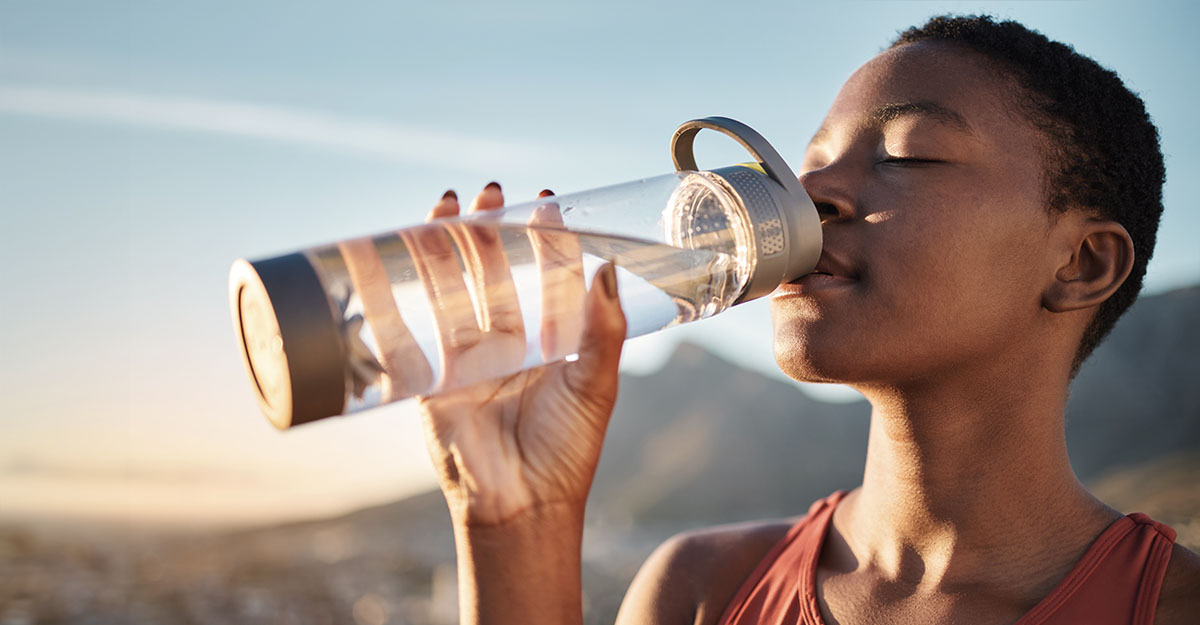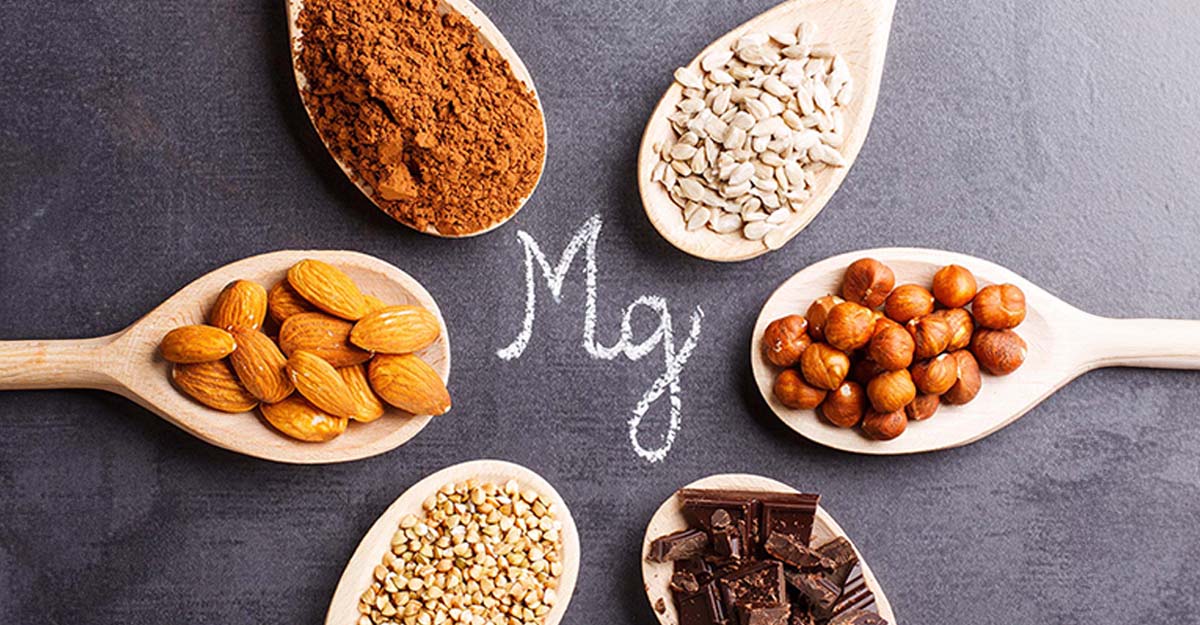
Electrolyte water takes hydration to the next level, providing optimal support for athletes, people recovering from injuries and illness, and those exposed to extreme environmental conditions. But is it right for you?
Electrolytes, such as sodium, potassium, calcium, and magnesium, regulate and are crucial to various bodily functions. They play a role in maintaining fluid balance, transmitting nerve signals, and supporting muscle contractions. Without them, the body may experience cramping, fatigue, dizziness, and even seizures.
But take excessive amounts and you can overdo it.
Find out more about the benefits of electrolyte water to determine how it can improve your health.
What is the Best Electrolyte Water?
Like many products, not all electrolyte waters are created equal. Some contain added sugar and artificial ingredients. Other products are just water with added minerals, and are not properly balanced for optimal health.
Natural Healthy Concepts carries electrolyte water supplements you can trust. Here are some recommended products:
- Ancient Nutrition Rapid Hydration: Ancient Nutrition provides innovative products that support holistic wellness. Its Rapid Hydration offers optimal hydration and supports cellular, digestive, and energy health. It has a great lemon lime flavor.
- QuickSilver Scientific Original Quinton Isotonic 30 Amoules: Quicksilver offers products that revolutionize how the body absorbs nutrients. Its Quinton Isotonic is fortified with seawater electrolytes that help detoxify the body, supporting digestion, sleep, immunity, and cellular balance.
Explore more electrolytes to learn about products that support optimal health.
What are the Various Types of Electrolytes?
Common electrolytes in water include:
- Sodium supports fluid and blood volume regulation, nerve and muscle function, nutrient absorption, blood pressure, pH balance, and hydration.
- Potassium regulates fluid balance, supports muscle and nerve function, helps maintain healthy blood pressure and heart rhythm, aids with detoxification, and plays a key role in kidney and bone health.
- Calcium aids with muscle contraction, nerve signal transmission, heart rhythm regulation, and blood clotting.
- Bicarbonate maintains the body’s pH balance, helps transport carbon dioxide through the bloodstream, improves hydration, and buffers lactic acid during high-performance exercise.
- Magnesium maintains fluid balance, supports nerve and muscle function, promotes heart health, regulates blood sugar, aids in energy production, supports bone strength, and can help with muscle contraction, endurance, and cramp reduction.
- Chloride regulates blood pressure, maintains fluid balance, supports nerve and muscle function, aids digestion, transports carbon dioxide throughout the body, and helps regulate the flow of nutrients and waste.
- Phosphorus is crucial for energy use, nerve function, maintaining pH balance, energy production, muscle contractions, and nerve signaling. It also plays a role in heart function and bone strength.
Benefits of Electrolytes in Water
People who drink electrolyte water experience the following benefits:
- Hydration: Electrolyte water takes hydration to the next level, working at the cellular level to help the body maintain optimal fluid balance.
- Prevents Heat Stroke: Heat stroke occurs when the body loses essential minerals through sweat. Electrolyte waters replenish those minerals and should be consumed in high temperatures and when engaging in rigorous physical activity.
- Supports Muscle Function: Electrolytes in water, such as sodium, potassium, and magnesium, help prevent muscle cramps and fatigue and support recovery.
- Heart Health: The minerals in electrolyte water maintain proper nerve signaling and muscle contractions, including those involved in cardiac function. An imbalance can lead to irregular heart rhythms, high blood pressure, and cardiovascular disease.
- Nerve Function: Potassium, sodium, and calcium play a significant role in nerve communication, ensuring that impulses travel seamlessly throughout the body and supporting optimal muscle and cognitive function.
What are the Risks of Electrolyte Waters?
Although electrolytes are beneficial, they can pose risks, especially when consumed excessively. For example:
- Excess sodium can raise blood pressure and cause water retention and bloating.
- Too much potassium can cause a condition called hyperkalemia, characterized by muscle weakness, nerve issues, and an irregular heartbeat.
- Overhydration can be caused by drinking electrolyte water without the need to replenish, which can imbalance the minerals in your body, resulting in symptoms like confusion, nausea, and dizziness.
Guidelines on Electrolyte Water Consumption
The following guidelines will help you avoid the risks of electrolyte waters.
- Stick to plain water for regular hydration.
- Drink 7-10 ounces of electrolyte water every 10-20 minutes during intense exercise or extreme heat.
- Consume 16-24 ounces of electrolyte water after exercise for every pound of body weight lost through sweat.
- When ill or experiencing extreme conditions, consume electrolyte water according to individual loss. One to two drinks may be enough to achieve optimal balance. If you are still thirsty after that, drink regular water.
Natural Healthy Concepts is Your Choice for Wellness Products
Electrolytes in water can help you reach your health goals and avoid dehydration, but they must be combined with other wellness measures to achieve optimal well-being. Natural Healthy Concepts offers a wide selection of everything from supplements to personal care items, ensuring a well-rounded approach. Browse our website or schedule a consultation with one of our practitioners
to learn more.
FAQs
Who should drink water with electrolytes?
Athletes who exercise intensely for over an hour, people recovering from digestive issues such as vomiting and diarrhea, and those who spend prolonged periods in extreme heat should consume water with electrolytes. Individuals engaging in daily activities can stick to regular water.
How to tell if you need electrolytes or just water?
You should drink water with electrolytes if you are experiencing symptoms such as muscle cramps and weakness, fatigue, and heavy sweating after intense exercise or prolonged exposure to heat.
Are electrolytes good for pregnancy?
In general, electrolytes are good for pregnancy. They maintain the proper hydration for mother and child while supporting nerve and muscle function, blood pressure, and amniotic fluid levels. However, everyone has unique health needs. Talk to your obstetrician to see if drinking electrolyte water is safe for your pregnancy.
Who should not drink electrolyte water?
People with high blood pressure, congestive heart failure, and kidney disease should not drink electrolyte water. Additionally, those with diabetes should avoid electrolyte waters with high sugar content. People who are pregnant and on certain medications should talk to a doctor before making electrolyte water part of their routines.
* These statements have not been evaluated by the Food and Drug Administration. The products mentioned are not intended to diagnose, treat, cure, or prevent any disease.



